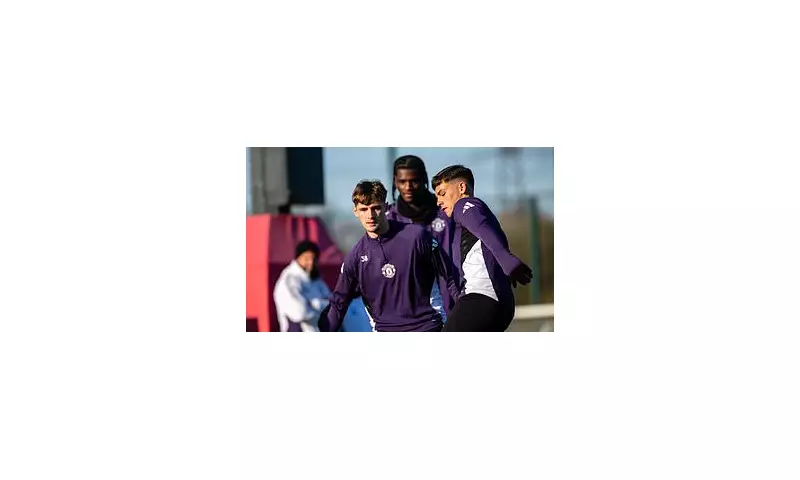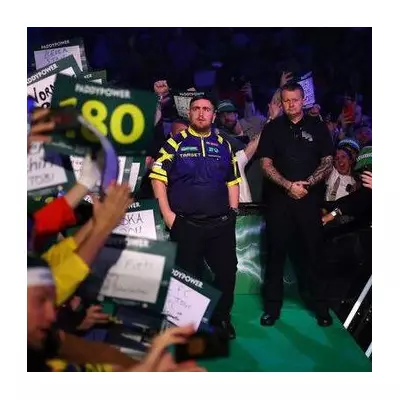
Manchester United manager Ruben Amorim finds himself at a critical juncture regarding the club's famed academy system, with growing fan frustration over what many perceive as empty rhetoric about youth development.
The Disconnect Between Words and Actions
Despite regularly praising the importance of United's youth system, Amorim's team selections tell a different story. The Portuguese manager frequently speaks about the academy being "our future" yet has been reluctant to fully trust young talents in crucial Premier League matches.
This contradiction became particularly evident during United's recent match against Tottenham Hotspur. Despite including 18-year-old Jack Fletcher in the squad, Amorim made five substitutions without giving the teenager any minutes. Similar patterns have emerged throughout the season, leaving supporters questioning the manager's commitment to youth development.
Concerning Treatment of Academy Graduates
The situation with Kobbie Mainoo has raised particular eyebrows among the Old Trafford faithful. Mainoo, widely regarded as the academy's brightest prospect in years, has struggled to secure consistent midfield minutes under Amorim's management.
Other young players have faced similar challenges. Chido Obi, who made eight appearances in the 2024-25 season, has become a non-factor despite Amorim's previous praise. Marcus Rashford was sent on loan to Barcelona, while Harry Amass, who broke through last season, now finds himself at Sheffield Wednesday on loan.
The only other academy graduate to receive a debut under Amorim, Tyler Fredricson, has managed just 45 minutes of first-team football all season.
Impending Selection Crisis Forces Hand
Amorim now faces circumstances that may compel him to finally back his words with actions. Benjamin Sesko's month-long injury absence combined with the upcoming Africa Cup of Nations call-ups for Bryan Mbeumo, Amad Diallo and Noussair Mazraoui create significant squad depth issues.
Additional fitness concerns have only exacerbated the situation. Matheus Cunha picked up a minor knock in training, while Mainoo has been battling an issue that kept him out of the Tottenham match entirely.
The manager acknowledges the timing is right to "send a message" to Carrington's best talents that they're ready to make an impact. "I'm more confident with them," Amorim told Daily Mail Sport. "When we put these kids to play in Premier League they will struggle, but will struggle less I think."
New Generation Knocking on the Door
Recent developments suggest change might be imminent. Jack Fletcher and 18-year-old Shea Lacey have become regulars in first-team training in recent weeks, with both players now considered close to their senior debuts.
Amorim expressed particular enthusiasm about Lacey's progress: "I'm really happy with Shea. I think he struggled a little bit with injuries. Staff did a very good job balancing his body and you can sense that he can manage more load during training."
The manager did caution that the transition to first-team football remains challenging for young players: "He has a lot of talent but when they come here, they can sense the speed is completely different, so they need to spend more time with us to be prepared because our trainings are hard."
Broader Academy Integration Efforts
United have implemented structural changes to better prepare academy products for first-team football. More young players are training with the senior squad, including Fletcher, Lacey, Jim Thwaites, Bendito Mantato, Gabriele Biancheri and Jacob Devaney.
The Carrington training ground now buzzes with optimism that current academy graduates arrive better prepared than their predecessors. Amorim credited Under-21s lead Travis Binnion and Under-18s boss Darren Fletcher for their crucial development work.
However, the manager emphasised that technical ability alone won't guarantee promotion. Off-pitch behaviour receives equal scrutiny to on-field performance in Amorim's assessment criteria.
"We are paying more attention, we are talking with them," Amorim explained. "It is so important for us to exchange information about the players, what they need, how they behave, even to call a kid for the first team they need to behave really well."
Obi's Situation Highlights Development Caution
The case of Chido Obi illustrates Amorim's cautious approach to youth integration. Despite being the only orthodox number nine at either first-team or Under-21 level, the 16-year-old's chances of returning to the senior setup appear remote.
Amorim defended this approach: "He played last year and I think it was too soon. We didn't have a team that we can put a young kid at 16, that he will not struggle, or will struggle a little bit."
The manager stressed the importance of managing young players' expectations: "I think he started too soon and sometimes it's hard to deal with that, with the kids, because they think that I'm already here. No, you are here for necessity, and we need to be careful also with that, with the kids."
Historical Context Adds Pressure
Amorim faces additional pressure to maintain United's proud academy tradition. The club hasn't fielded a matchday squad without a homegrown player since 1937 - a remarkable streak the manager has previously stated he doesn't want to end.
With the upcoming fixture congestion and squad depletion, Amorim has the perfect opportunity to prove his academy rhetoric isn't just empty words. How he navigates the coming weeks could define his relationship with both the club's youth system and the increasingly sceptical fanbase.
The stage is set for United's next generation to step up. Whether Amorim truly trusts them to do so remains the burning question at Old Trafford.




